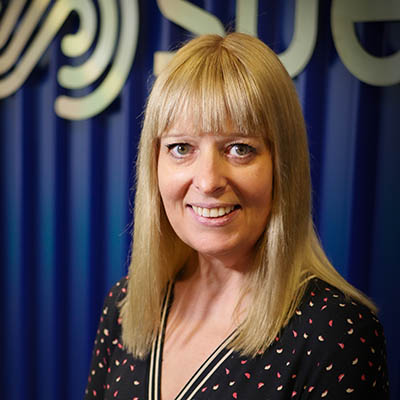Rising to the (unequal) challenge

It’s become a cliché to say that we live in challenging times. The pandemic has sorely tested public services, business models and assumptions about our ways of working. But it has proved particularly challenging for women.
Not only were women hit harder in terms of employment – they were about 30% more likely than men to work in sectors shut down by the government1 and almost twice as likely to be laid off2. When working from home, they’ve borne the greater share of the home schooling and usual chores. Women, on average, did two-thirds more of the daily childcare than men during the first lockdown3. In a previous blog I welcomed the tentative signs that this shared experience of working from home had challenged more fathers to widen their parenting duties.
That’s one worthy cause to champion for International Women’s Day, on 8 March, whose theme this year is #ChooseToChallenge. There are many other challenges that we – as employers, managers and as employees too – need to address if equal opportunity and equity for women and all workers is ever to be assured.
Progress depends on processes and the people who operate them. In my career I’ve had many managers, some inspirational and more supportive than others. It may surprise some, but the managers who contributed most to my career development and advancement were male – one of whom promoted me immediately before I headed off on maternity leave as he said he wanted to ensure that I came back! That makes me question gender assumptions and reinforces my mission to do my bit for women in the company, our industry and society.
This constant questioning of the status quo needs to begin with parenting of all our children and extends through school days to how we recruit and retain women in the workforce and remove the obstacles to their advancement.
At SUEZ recycling and recovery UK, our resourcing team regularly visit schools to talk about opportunities for women and young people in our industry. One of the aims of our outreach work is to inspire girls to study STEM subjects, and it extends to school assemblies, job fairs and graduate fairs.
We have female engineers who are also active in promoting STEM subjects to the next generation of graduate applicants, women in technical roles, and managers. I am inspired by them and their commitment to encourage and support other young people and women.
Our industry is making progress when it comes to attracting female applicants for jobs across the board. Apart from the ethics of equity in opportunities and recruitment, there is the very real business need to attract people from the biggest possible pool of human talent.
After employing our people, it’s in our common interest to foster a positive, stimulating and supportive working environment – to develop them, and provide a fulfilling career pathway for those who wish to advance.
Employees at all levels of our organisation had the opportunity to contribute to our Wellness Charter, launched in 2019. Our vision of ‘Wellness For All’ has seen us increase the support we provide for all employees, and it includes sessions specifically aimed at women and the issues specific to them. The purpose is to ensure they have a voice and feel supported in the workplace.
One point in the working life of many women when they need that extra support is when starting, or growing, a family. We know that returning from maternity leave can be a challenging time, which is why we have trained maternity coaches to support women. They help both before and during maternity leave, and importantly, when mothers come back to work. We are also pleased to be expanding this support to men on paternity leave too.
What else should we do to retain and develop female talent? Mentoring is important, whether it’s formal or informal. The SUEZ group’s mentoring programme pairs mentors and mentees from different countries where we operate.
Also, this year we are expanding our secondments programme. We want to provide our people with development opportunities in different parts of the company, so they can gain experience across the breadth of our activities. We will also increase work shadowing – again, making it easier for our people to gain first-hand experience in other roles and departments.
One-to-one coaching is another valuable way of supporting the development of employees. We have trained coaches available to support our employees in different aspects of their work for the company.
Across various industries and professions, the importance of networking has been recognised more in recent years, and the opportunities have multiplied. This is an important aspect of career development. Notwithstanding the hiatus due to the pandemic, and the ability to network online, I look forward to face-to-face meetings and events resuming before too long.
Within SUEZ, we have an active Women’s Network. Our network provides an opportunity for women to meet and learn from each other and provide mutual support. The Network also provides training opportunities to enhance that support. Topics and issues addressed range from ‘Effective networking online and in person’ to ‘Speaking up against unacceptable behaviour’.
Our industry, and UK Plc generally, has made progress in tackling inequalities in pay, opportunities, and importantly, work culture. But there is still a long way to go, not least when it comes to career progression and women’s under-representation in senior management and leadership positions. The gender pay gap remains a reality.
As part of our inclusion ambitions, this year every company in the SUEZ group has been challenged to implement a plan to increase the proportion of women in management roles. Our commitment is evident at a senior level and expands across the globe. Targets have been set and progress is being monitored. I see this as very positive. But we must do more. We must continue to progress the women’s agenda and have the confidence to call out where we see behaviours that deviate from our inclusion commitments.
Returning to the theme of this year’s International Women’s Day: we are choosing to challenge, and we need to keep doing so.
References
1https://www.ifs.org.uk/publications/14791
2https://www.exeter.ac.uk/news/research/title_805482_en.html
